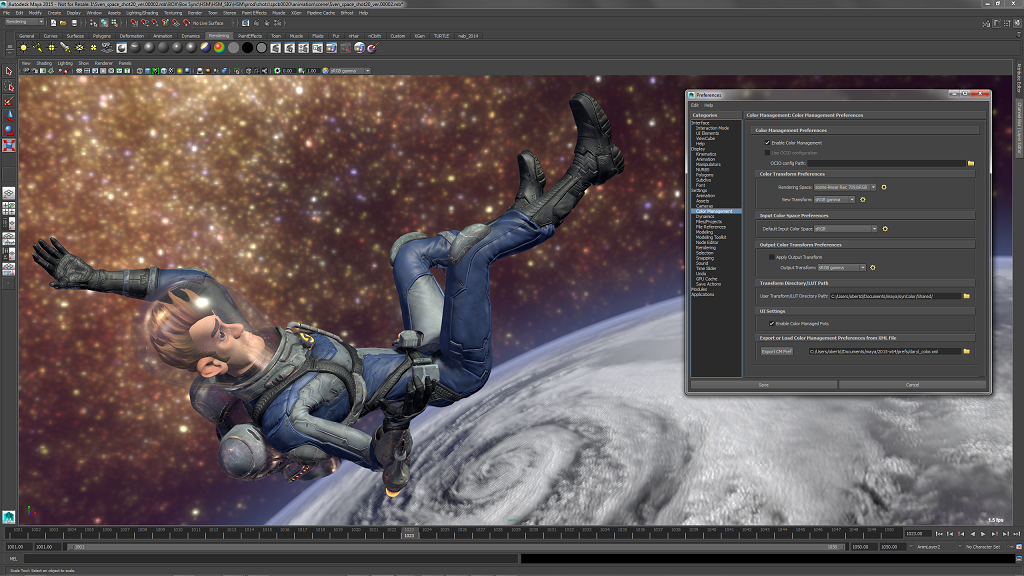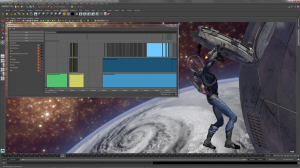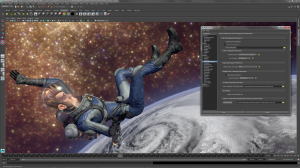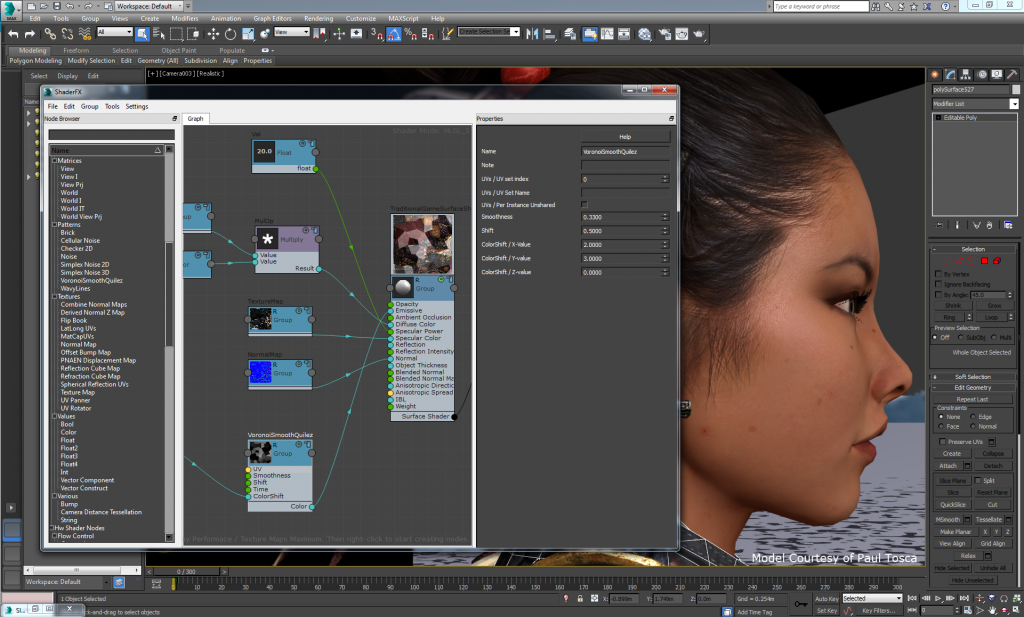The newest update for Autodesk Maya 2015 delivers powerful new production tools to help studios large and small build more efficient and productive pipelines. With a sophisticated new color management system that offers a color-safe workflow throughout the lighting, rendering and compositing process; new tools that help make it easier to share, transfer, and collaborate on data; and extended customization options for Viewport 2.0, Maya 2015 Extension 1 helps provide studios with new opportunities to create differentiated, future-proofed pipelines.

Color Management: A completely new colour management system preserves artistic creative intent throughout the lighting and rendering process with a simple linear workflow is provided out of the box. Studios can customise the system to closely match their color pipeline, enabling artists to work across The Foundry’s NUKE software, Adobe Photoshop software, Autodesk Creative Finishing solutions, and certain other applications to help allow for color compatibility throughout the studio pipeline.

Performance Profiler: Technical directors can now gauge, measure, and debug the performance of individual nodes, character rigs, and Maya scenes. Performance Profiler offers a graphical interface that enables performance measurement and graphing for dirty propagation, evaluation, deformations, rendering, Qt events, XGen instancing and Bifrost simulations. Developers can now use Performance Profiler in other custom tools and plug-ins using a robust API (Application Programming Interface).
Modeling and Workflow Productivity Enhancements: Requested by artists, the update now includes workflow enhancements to make daily tasks easier and more efficient: expanded wireframe color choices; a per-menu keyboard shortcut to repeat the last command; object visibility toggling; color coding in the channel box to reflect various key states; performance improvements and multi-UV tiling support for OpenSubdiv; enhancements to the Multi-Cut tool; further integration of the Modeling Toolkit; and new custom pivot workflows.
 XGen Performance Enhancements: Artists can now create and groom hair, fur, and feathers on characters, and populate large landscapes with grass, foliage, trees, rocks, and debris trails faster and more efficiently, with targeted performance enhancements for the XGen Arbitrary Primitive Generator.
XGen Performance Enhancements: Artists can now create and groom hair, fur, and feathers on characters, and populate large landscapes with grass, foliage, trees, rocks, and debris trails faster and more efficiently, with targeted performance enhancements for the XGen Arbitrary Primitive Generator.
Python API for Viewport 2.0: Maya 2015 Extension 1 introduces a Python API for the high-performance Viewport 2.0 hardware-accelerated display, offering increased flexibility for viewport customization using this popular and easy-to-learn scripting language.
Autodesk Maya 2015 Extension 1 will be available from 10 September, 2014.
Autodesk 3ds Max 2015 software helps increase overall productivity for artists and designers working with the high-resolution assets required by today’s demanding entertainment and design visualization projects. The newest update adds new features that help artists easily create and exchange complex assets across multiple workflows:
OpenSubdiv Support: Extension 1 adds the top featured requested from the community. Open-sourced by Pixar, OpenSubdiv allows artists to represent subdivision surfaces, visualize their model interactively without the need to render, and offers overall greater productivity.
Alembic Support: Alembic makes processing complex animated and simulated data more memory efficient and allows artists to view large datasets in the Nitrous Viewport and transfer them to other programs.

Enhanced ShaderFX: Enhancements to the ShaderFX real-time visual shader editor offer expanded shading options and better shader interoperability between 3ds Max, Maya, and Maya LT. With new node patterns — wavelines, voronoi, simplex noise, and brick — as well as a new bump utility node and a searchable node browser, game artists and programmers can create and exchange advanced shaders more easily.
Extension 1 for 3ds Max 2015 has been available since 12 August, 2014.
